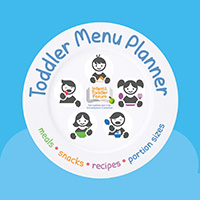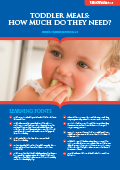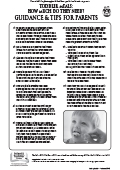
Use our Toddler Meal planning tool to ensure your 1-4 years old receives a balanced diet every day.
Find out more >
Use our toddler food tracker to check that your 1-4 year olds are getting a good balance of foods and activity
Find out more >
This educational programme for frontline professionals contains a range of practical resources on infant feeding.
Find out more >
Guidance & Tips for Parents
- Toddlers have smaller stomachs than adults and so need to eat smaller amounts of food more often. They should be offered three meals and two or three planned snacks a day
- Most toddlers quickly learn to control their food intakes to meet their energy needs for normal growth and development
- Like adults, children regulate their food intakes by feeling hungry when they need food and feeling full when they have eaten and drunk enough
- Forcing toddlers to eat when they do not want to, or withholding food that they like, can interfere with their food intake control
- Insisting that toddlers finish up what is on their plate can interfere with their food intake control
- Do not allow your toddler to ‘graze’ on food in between meals and snacks; they will not develop good control of food intake
- Do not withhold snacks to make your toddler ‘hungry’ for the next meal. This can upset his or her food intake control
- Forcing your toddler to finish food that he or she does not like can make mealtimes stressful. This may cause your toddler to refuse food
- If your toddler does not finish the first course, remove the food without making any comment and move on to the next course
- Do not say ‘you can’t have pudding until you’ve finished your first course’. This makes pudding seem even more desirable
- Do not use sweets or snacks as a reward because this will make these foods seem more desirable to your toddler
- There is no such thing as an ‘ideal’ portion size for all toddlers. A large active toddler will need more food than a smaller, less active child
- Do not worry if your child is a fussy eater. He or she may still be in control of their food intake, although regulation may be week-to-week rather than day-to-day
- If your child is growing well and developing normally, then do not worry too much about their eating habits. Growth and development is a better indicator of appropriate food intake than mealtime behaviour




